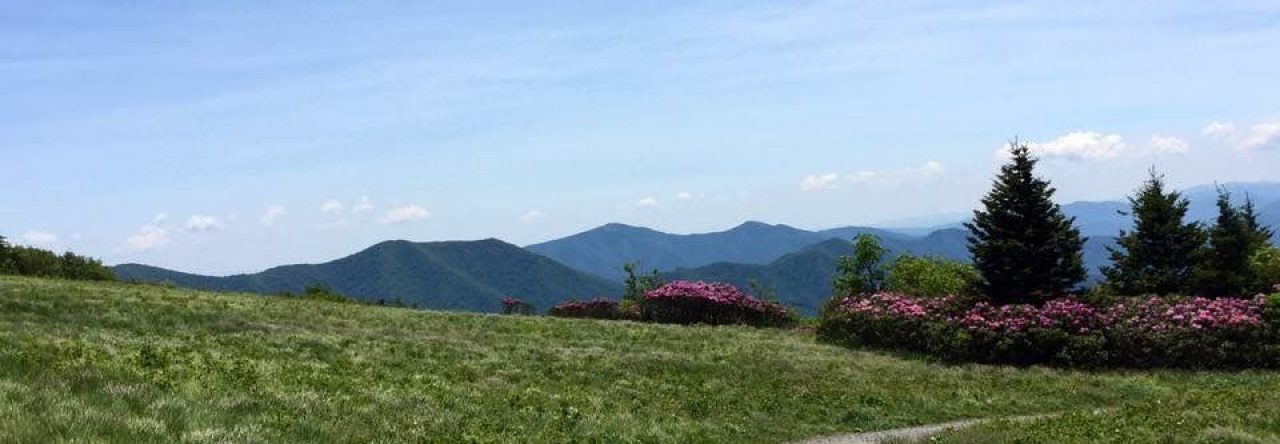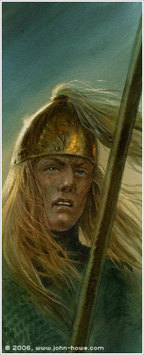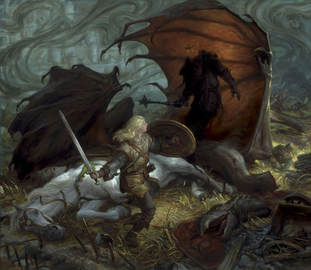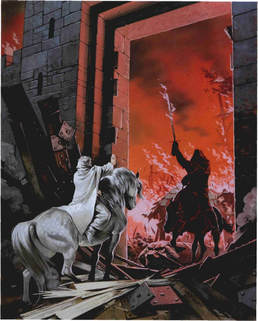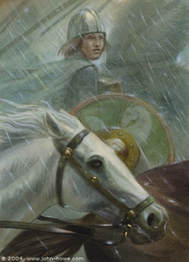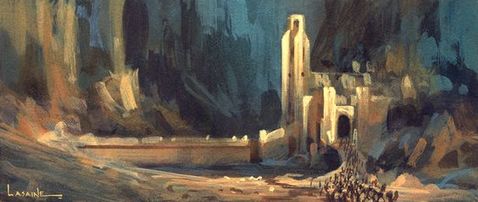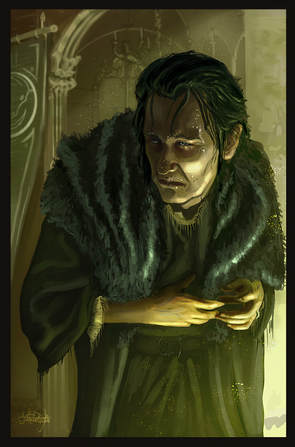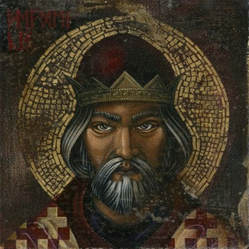The Grey Company was one of the most unexpected occurrences in all LotR to me. They show up in Rohan completely unheralded and change the course of the narrative entirely. As I said before, I did not read any contextual material in my first reading, so my entire experience with the sons of Elrond up to this point was their small roles in Rivendell. Therefore, it was completely unexpected that this troop of brave men that were not really introduced earlier should come into the story and completely alter Aragorn’s plans.

While this may seem like a coincidental intrusion by the writer, it is explained well enough by the characters that it did not detract from my enjoyment of the story. It made sense to me that Galadriel would send what aid she could to Aragorn, and that the sons of Elrond would be the ones entrusted with such an important message (RK, V, ii, 775).
I will be honest and admit that I did not understand who ‘the Lady of Rivendell’ was or what she could have made for Aragorn (RK, V, ii, 775). I assumed that this was a reference to Elrond’s previously unmentioned wife and she was sending some gift to Aragorn as a source of comfort like the way that Mrs. Maggot send mushrooms with Farmer Maggot.
I followed Aragorn’s decision to use the Palantir and to ride on through the Paths of the Dead. I loved the description of the Paths and the other-worldly feel of these passages.
‘Signs and figures were carved above its wide arch too dim to read, and fear flowed from it like a grey vapor…Aragorn led the way, and such was the strength of his will in that hour that all the Dúnedain and their horses followed him’ (RK, V, ii, 786).
The Paths were different from the rest of the places that the company visits, except perhaps the elvish cities. These passages convey a sense of ineffability even as they try to describe most of the mundane actions throughout the sequence. In other words, I enjoyed how the narration mainly focuses on tangible facts, but still hints at something more. This reinforces both the ethereal feel of the pass, but also Aragorn’s strength of character.
The way that the Grey Company delivers the eucatastrophe at the Battle of the Pelennor Fields gives me chills every time I read it. Their unexpected arrival is foreshadowed well by their abrupt entrance to the narrative in Rohan. This kind of surprise meeting is now expected from the Dúnedain. The first time I read it, however, I was flabbergasted. I felt like Sam when he wonders if
‘everything sad [is] going to come untrue’ (RK, VI, iv, 951).
Their arrival just in time to ensure victory for the Gondorians was completely unexpected and drained me emotionally.
On a side note: Jackson gets the Ride of the Grey Company completely wrong. He establishes a king of the dead that Aragorn talks to and negotiates with, which is not accurate. I knew on my first reading that Aragorn was the king of the dead. This is why they follow him, they owe their allegiance to him.
Where Do We Go From Here?
To the Houses of Healing, then to examine the last stand
What Do You Think?
How did you first interpret the ride of the Grey Company?
Did you see Aragorn as the King of the Dead?
Did I miss something? Let me know!
